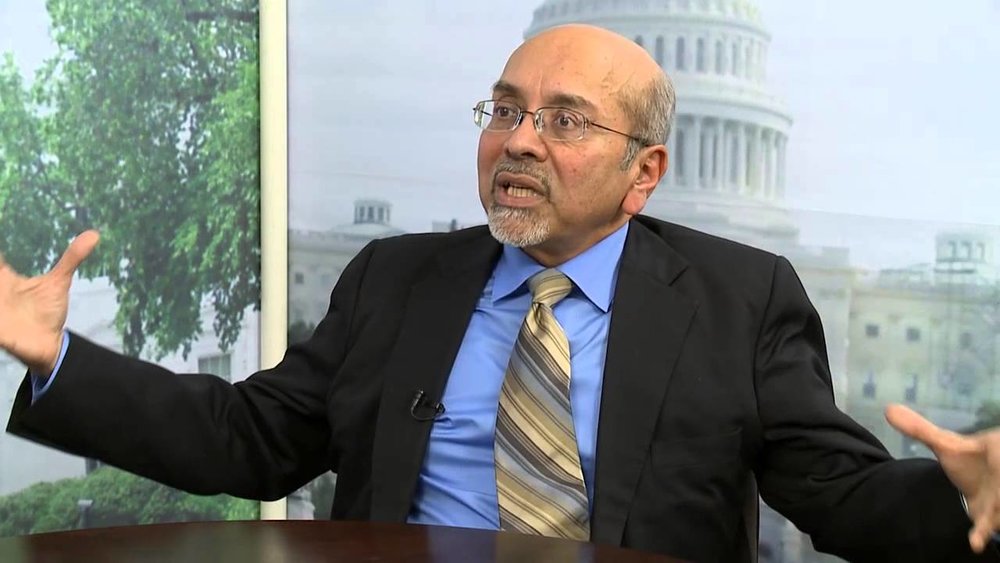Global stability rests substantially on China-U.S. ties: expert

TEHRAN - Gautam Adhikari, a senior fellow at the Center for American Progress in Washington DC, tells the Tehran Times that the future global security primarily lies in close interaction between Beijing and Washington.
“Future global stability rests substantially on this key bilateral relationship,” Gautam Adhikari tells the Tehran Times.
Following is the text of the interview:
Q: President-elect Donald Trump and Taiwan’s president had a telephone conversations, a move which contrasted Washington’s one-China policy. What was the motive behind the call?
A: The call was reportedly made at the urging of former Republican senator and presidential candidate Bob Dole, 93, who is a lobbyist for Taiwan. As with much of president-elect Donald Trump's foreign policy moves at this pre-inauguration stage of his coming presidency, the motives are not clear. It has clearly riled China and seems to have changed longstanding U.S. policy, in place since 1979, towards China in a striking way. That policy conceded China's 'one-China' claim over Taiwan. But Trump, by speaking with the Taiwanese leader, may have wanted to poke Beijing in the ribs, in keeping with the tone of his campaign rhetoric against China, just to test the waters. On the other hand, keeping uncertainty alive about his motives may be his style. It is difficult to decipher whether president-elect Trump has a well formed worldview or whether, as he likes to say, all issues and relationships are open to negotiation.
“It is difficult to decipher whether president-elect Trump has a well formed worldview or whether, as he likes to say, all issues and relationships are open to negotiation.”Q: Given the economic dependency of the U.S. on China, what is the right approach toward Beijing by the United States?
A: The U.S. and China share a lot of mutual economic inter-dependency. China has become a major power with growing influence in Asia and the developing world and it has, on the whole, been a cooperative player in a leadership position on the global stage. From both the economic and strategic viewpoint, a constructive, even if competitive, relationship with China is in the vital interest of the United States. Future global stability rests substantially on this key bilateral relationship.
Q: Some are of the opinion that Trump’s contact with Taiwan’s president was intended to exert pressure on China. What is your analysis of the Trump administration’s policy toward China once he is officially sworn in as president?
A: Trump has business interests that stretch across the globe. How far he would be able or willing to divest most of those interests remains to be seen. The potential of conflict of interest looms large over his coming presidency and we don't know how he will deal with it. Sure, he has interests in Taiwan and that could be one reason why he spoke to the Taiwanese leader. But national security advisers in his still evolving team would quite likely point out the many pitfalls in having an openly adversarial relationship with Beijing. As president, he might be compelled to move cautiously. But, again, we simply don't know. The only feature of his foreign policy that we can discern at this stage is his desire to have a very friendly relationship with Russia.
Q: Trump has selected Rex Tillerson - a figure who has a warm relationship with Russia – as his secretary of state. How can this affect the U.S.-Russia relationship on one hand and the U.S.-EU relationship on the other?
A: Rex Tillerson's nomination as secretary of state will have to go through a senate confirmation process. Several senators, including prominent Republican leaders like John McCain and Marco Rubio, have expressed reservations about Tillerson's suitability for the job given his closeness to Vladimir Putin, the Russian leader, and his company Exxon-Mobil's multitude of business interests around the world, including Russia.
However, in my cautious opinion Tillerson is not alone in having a fondness for Russia. Trump himself has expressed highly positive views about Putin's leadership and the need for Washington to develop a cooperative relationship with Moscow. There are others in his close circle who have similar views. That's what has been making several European leaders nervous.
Russia has been known to interfere in European elections, in the same manner in which it has apparently intervened in the recent U.S. election.
Also, any international sanctions regime against Moscow will become hard to maintain if the U.S.-Russia relationship undergoes a radical change. Some countries that border Russia and were part of the former Soviet Union are particularly anxious. If U.S. policy towards Russia does an about-turn from its currently adversarial state, the consequences for Europe, for NATO and indeed for the future of global alliances are difficult to foresee but it will mean a significant change from existing international arrangements and assumptions.
